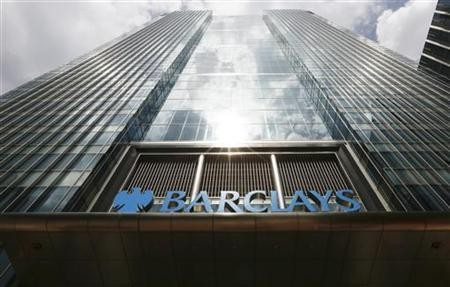Mis-Selling Derivatives Scandal: Barclays Offers SME Landish Consultants £1.5m

Barclays has offered to pay Landish Consultants £1.5m in compensation, for the mis-selling of a complex interest rate hedging product, although the final amount can only be paid after consequential losses have been determined.
While the total offered compensation is £1.3m (€1.5m, $2m), by combining the Financial Conduct Authority's (FCA) agreed interest at a rate of 8%, the extra amount added on results in £250,000.
With the support of solicitors Slater & Gordon, the lobby group Bully-Banks, derivatives experts Benchmark Treasury Pricing and later the Financial Conduct Authority's redress scheme and pilot review, Landish Consultants managed to secure the highest payment offered, so far, from a bank to a victim of the mis-selling of interest rate swap agreements (IRSA).
"This is great news for us and it's just important to hear the bank apologise. I feel that Barclay's are starting to behave fairly to its customers, and treating us with respect," said Bill Haslam, who is the holiday resort's owner, based in Cornwall.
A spokesperson at Barclays told IBTimes UK that "the review has concluded that it is fair and reasonable to offer to replace Landish's structured swap with another interest rate hedging product, which addresses the lending condition of the loan with Barclays that required the company to partially hedge its borrowing."
"The review continues towards Barclays making Landish a final redress offer. We are pleased to be making positive progress with the review."
Haslam was sold a structured collar, which has been determined as the most toxic hedging product out of all the IRSAs by the FCA agreement with the banks. Barclays has also offered to switch him to a simpler product. The bank offered to also bear the costs of the termination of the swap.
Fraser Whitehead, head of group litigation at Slater & Gordon, currently represents more than 250 IRSA victims and has called on the rest of the banks to follow Barclay's lead to compensate the remaining SMEs without delay.
"This is great news for Mr Haslam and gives everyone hope that they will start to see some redress from the banks," said Whitehead.
"It has been a long fight and this is the first significant result anyone has had so we are proud to have been leading the way in securing that."
However, under the FCA review, no payments can be made until the entire process of determining redress is completed. This prevents a party being able to make claims over and over again and costing firms multiple sets of bills from fresh reviews.
This means that while a bank can make an initial offer - a product tear-up or switch and/or compensation - if a company is claiming for CL on top of this, then it would have to wait until after the bank's have assessed the application for damages.
It is also subject to agreement with the company.
The Process and Consequential Losses
In June, a study by Bully-Banks revealed that banks mis-selling derivatives to Britain's small-to-medium enterprises has cost the economy £1.7bn in lost revenues to the Treasury, as well as, 400,000 jobs.
IRSAs are contracts between a bank and its customer where typically one side pays a floating, or variable, rate of interest and receives a fixed rate of interest payments in exchange.
They are used to hedge against extreme movements in market interest rates over a given period. Companies that have seen the value of these products move against them as rates fell during the recession, now owe banks crippling sums of money in interest payments each year.
Some 40,000 IRSAs sold to UK businesses are said to be eligible for the FCA review, which was launched in June last year.
However, at the end of January 2013, the FSA unveiled its findings from a pilot scheme that examined the sale of 173 IRSAs to British firms and found that at least 90% of those did not comply with at least one or more regulatory requirements.
"To know that we will be getting back all of the £1.3m of payments that were taken, is great news, but sadly it's still tainted somewhat as despite all of this we will not get any of this money back until we agree our consequential losses as well, which will be complex and will take us some time of course," said Haslam.
"This could take us several months and it seems unfair to agree that someone has suffered and then continue this suffering further.
"We just want the money back so we can reinvest it into the business."
Meanwhile, businesses are said to be flocking towards litigation to resolve claims that banks have mis-sold them complex derivatives, as thousands of firms are still waiting to hear back, on whether they will receive redress and compensation.
© Copyright IBTimes 2025. All rights reserved.






















